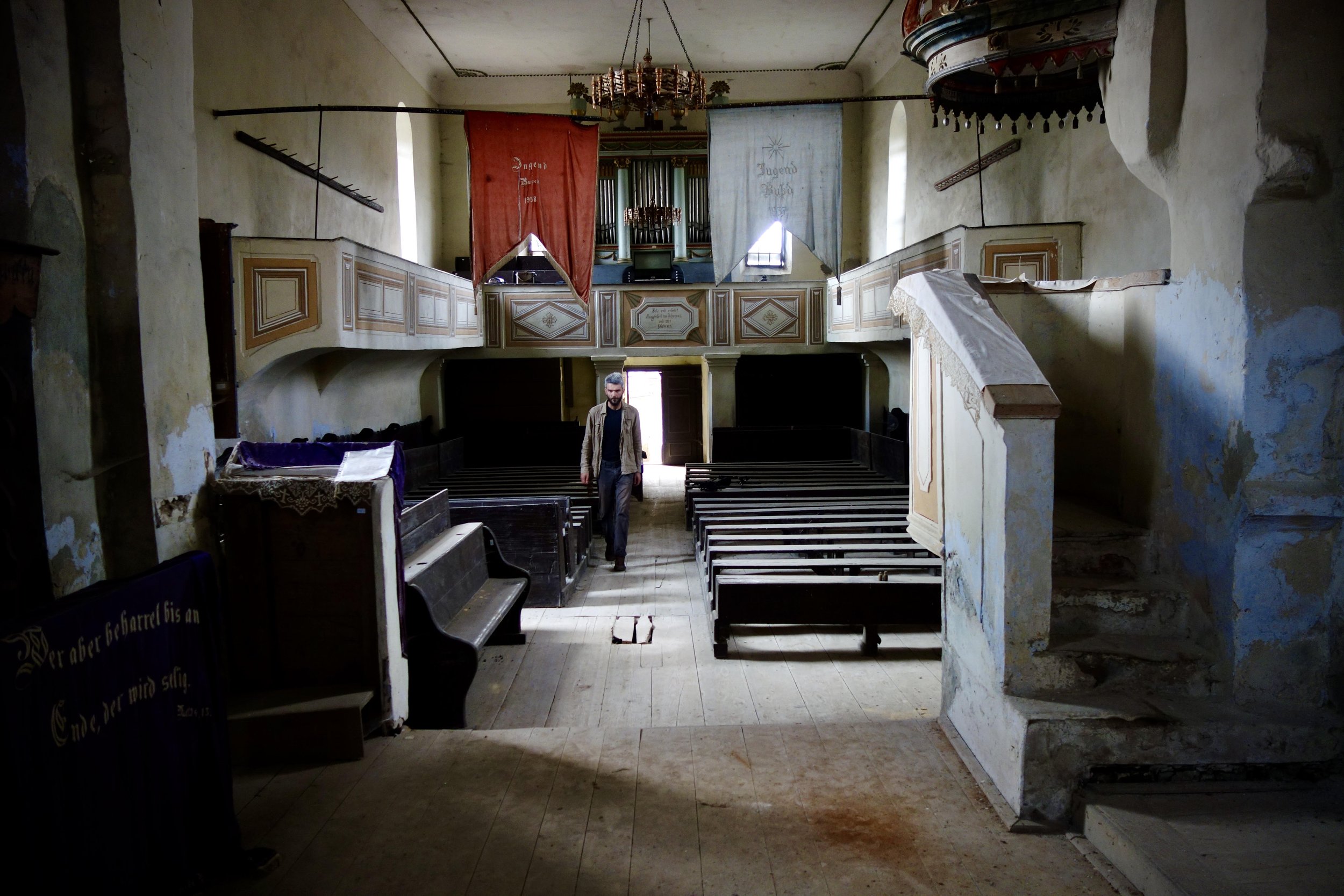The music and art of Stefan Fraunberger draws on the language of things to focus the in-between. His work spans composition, installation, writing, solo and ensemble performance and works for theatre and movie.
Stefan Fraunberger engages with the possibilities of material and liminal entities - relating different instruments, beings, techniques and sciences. A counterpoint from somewhere reflects his approach towards transformation / difference. Investigating the uncanny within earthly agencies describes Fraunbergers future-oriented perspective beyond nature and culture. Stefan creates, translates and researches territories involving augmented church-organs, electro-acoustic realms, hammered dulcimers, voices, horns and pre-modern scripture: the drama of states becomes a response to contemporary emergencies.


Fraunbergers long-term project "Quellgeister" examines the unique character of derelict pipe-organs in abandoned Transylvanian fortress churches. This ongoing project of different sequences is investigating the various transformations that ritual machines undergo once left devoid of human presence. The organs are slowly changing their interior material composition, developing a climate beyond systemic demands. To date, he has published internationally critical acclaimed Quellgeister #1 - #3.
Another project dealing with church-organs is the series "Plausibilities" - aural translations, exegesis and analysis for automated pipe-organs.
Fraunberger consistently pursues the altered perception of space in his work "Wirbelsatz/Vortexmovement", focusing on specific material qualities of conch-shells that shift our perception of water and entropy, relating non-human resonances to human architecture.
His latest work is a sonic-theatrical overwriting regarding romantic period / Biedermaier literature. Interweaving Franz Schubert's "Maiden of the Mill" with the ritual voice of Kurdish singer Sakina Teyna and sonics from "Hearafter" to create a liminal drama: "the glory of the millers doom". Investigating the uncanny within earthly agencies describes Fraunbergers future-oriented perspective on overwriting beyond nature and culture.


BACKGROUND Fraunberger studied electro-acoustic music and the humanities. He has written a thesis on liminality in the context of premodern sufi-scholar Ibn Arabi including Arabic-German translations of key passages. Stefan has studied several tongues and dialects. Having published articles and texts about "the progress of things being left behind", "language composing states" as well as about watersheds, his interdisciplinary approach is influenced by the ontological turn, philosophy of science and materiality. Stefan was awarded composition scholarships from the federal ministry of Austria and from the city of Vienna.
Based in Vienna, he has lived and worked in Aleppo, Sana'a, Tehran, Sibiu, Benares, Brussels and unmentioned places for social work, residencies, research, and studies.
RECOGNITION His work was commissioned, performed and exhibited internationally including Donaufestival, Krems / CTM Festival, Berlin / Grand Palais du Paris / Meakusma Festival, Eupen / Musikprotokoll, Graz / Berghain, Berlin / Museum of Natural History, Vienna / Outernational Days, Bucharest / Concert hall, Stavanger / Irtijal Festival, Beirut / Radical Tehran, Teheran / Baba Yaga's Hut, Round Chapel, London / Bouquet Stage, Kyiv / Aggregate, Auenkirche, Berlin / Seanaps Festival, Leipzig / Festival Imago Dei, Krems / Workspace Brussels, Les Brigittines / trans-european Plattform Shape 2017 / ...
Fraunberger's music and art has been described as „eschewing the pomp of sacred music for the fragile drone of an organic death knell“ (The Wire Magazine), „there’s an uncanny beauty both to Fraunberger’s seemingly absurd actions & to the, frankly, amazing results" (4against5)" and „between melodies and noise washes, that never stop being engaging and provocative" (Quietus), ...
Revue&Corrigée (french), March 2023
Meloport (ukrainian/english), August 2020
The Attic, August 2017
CTM Magazine, February 2017
Shape, January 2017
TheWire Portrait, Oktober 2016
Mica (german), April 2016